
views
Engineering Your Education

Start planning while in high school. Take plenty of math and natural science courses while you are still in secondary education. Opt for advanced classes if your school offers them. If you don’t enjoy, or struggle to do well in high school courses in chemistry, biology, physics, algebra, trigonometry, and calculus, environmental engineering may not be the field for you.
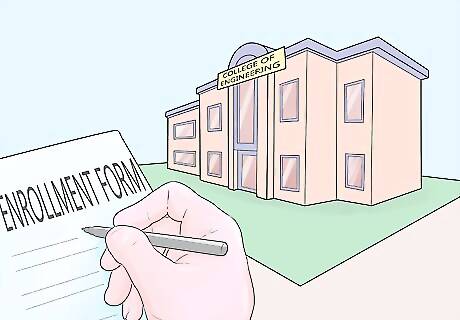
Choose a collegiate engineering program. Enroll in an environmental, civil, mechanical, chemical, or general engineering degree program. A bachelor’s degree in engineering is the minimum requirement for environmental engineers. Whenever possible, choose a program that is accredited by ABET (the Accreditation Board for Engineering and Technology). This may be required for licensing in your state. Some colleges offer combined BS/MS programs, which typically take five years to complete. Obtaining a Master’s degree is not normally required, but may improve your career prospects.
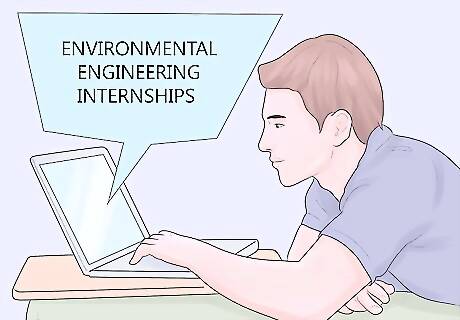
Gain practical experience while in school. Significant hands-on, real-world experience is expected before any new environmental engineer begins his or her career. Fortunately, environmental engineers have several options for gaining such experience while in school. Find environmental engineering internships during your summer breaks. If your school doesn’t offer these internships, look at the Environmental Protection Agency, www.epa.gov/oha/careers/internships, or engineerjobs.com. Apply for an engineering co-op job your sophomore year in college. Many universities work with employers to offer students work experience as they complete an engineering degree. You must maintain a GPA of 2.7 or higher with many co-op programs. Get involved with a university research team. If you are unable to find an internship or co-op during a semester, apply to help with an environmental engineering research project. Experience in analyzing and testing data is highly valued in the workplace. Apply for an entry-level environmental engineer position. You can’t lead an engineering project in most states without a license. However, the experience gain assisting a licensed environmental engineer will help you to earn your license.

Complete your degree. Remember, without a BS degree in engineering from an accredited college or university (and also, preferably, one with ABET accreditation for its engineering program), you cannot become an environmental engineer. You could still consider a related career, such as Environmental Scientist / Specialist (which requires a BS degree), or Environmental Engineering Technician (which requires an Associate’s degree).
Gaining Experience and Licensing
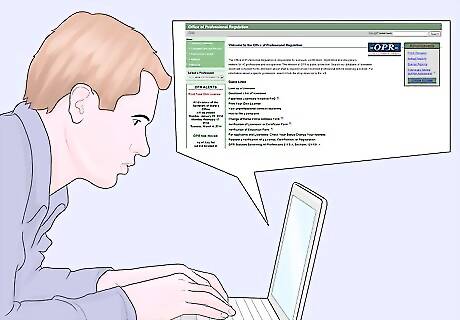
Research the licensing process in your state. In the U.S., the individual states control the licensing process of environmental engineers. Licensing is generally not required for entry-level positions in the field, but becoming a state-licensed Professional Engineer (PE) should be the goal of anyone seeking a career as an environmental engineer. Most states, however, follow a similar licensing process, which typically involves: earning an engineering degree from an ABET-accredited institution; passing the Fundamentals of Engineering (FE) exam; gaining substantial work or other relevant experience (typically for four years); and passing the Professional Engineering (PE) exam. Go to your state’s Office of Professions (or similar) website to find out specific licensing information. You will likely return here to apply for a license after you have completed the requirements.

Pass the FE Exam. The Fundamentals of Engineering (FE) exam is conducted by the National Council of Examiners for Engineering and Surveying (NCEES), and is typically taken shortly after graduation. Check the NCEES website for exam times and locations. The FE Exam consists of 110 multiple-choice questions, is administered by computer, and currently costs $225 to take.
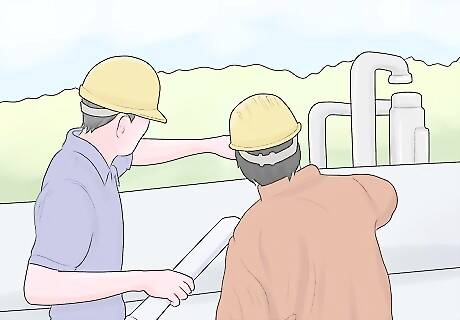
Gain four years of work experience. After passing the FE Exam, you can call yourself an Engineer in Training (EIT) or Engineering Intern (EI). From there, most states require four years of real-world work experience before you can complete the process of securing a professional engineering license. Some states award credits towards this four-year requirement for a combination of education and experience. These credits differ from state to state, but may allow you to substitute graduate degrees for on-the-job experience. Check with the relevant state agency for information.

Pass the PE Exam. Passing the Professional Engineering (PE) Exam is usually the final step before you can apply for state licensing as a Professional Engineer. It is not an easy step, however; the PE Exam is a rigorous, eight-hour test that is crafted for specialized fields such as environmental engineering. Like the FE Exam, the PE Exam is administered by the NCEES, and is offered in April and October each year. The current environmental engineering exam is an open-book test with one hundred multiple-choice questions, divided over two four-hour sessions. But again, don’t take it lightly.
Advancing Your Career

Study the job market. By the time you obtain state licensure as an environmental engineer, you will already have several years of work experience under your belt. With licensure, however, your opportunities will likely grow substantially, and a new survey of your options may be in order. Consider moving to a state that employs many environmental engineers. For example, large numbers of environmental engineers find work in Massachusetts, while New Mexico and Alaska’s engineers tend to get the highest average wages. Inquire with the companies that you worked for during engineering co-op programs or internships. People inside the company can vouch for your work ethic and experience, and you may have an easier time landing a competitive job. Apply for work with the federal Environmental Protection Agency (EPA), or a state or local agency with a similar focus. Renew your application regularly if you don’t get a job when you first apply. Look for jobs on specialized websites, for instance the American Academy of Environmental Engineers and Scientists (aaees.org).

Remain engaged within the profession. The engineering field is always changing as new technologies, regulations, problems, and solutions emerge, so it is important to stay on top of things in order to advance your career. For instance, the explosive growth in natural gas drilling using hydraulic fracturing (or “fracking”) has created new challenges (and new job opportunities) for environmental engineers. Some states may require continuing education credits or some other form of evidence that you remain up-to-date with the profession in order to retain your license. The AAEES website is a good starting point for recent publications and other information regarding environmental engineering (http://www.aaees.org/).
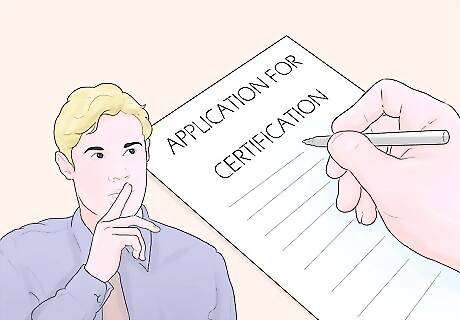
Seek board certification. After you become a professional engineer, you can apply to the National Society of Professional Engineers or the American Academy of Environmental Engineers and Scientists for board certification. A professional certification can help you network and improve your credentials as you look for senior engineering jobs. AAEES certification, for instance, requires a combination of testing, work experience, proof of ongoing professional development, valid licensing, and “high ethical integrity.” Contact the organization for more specific information on the certification process.











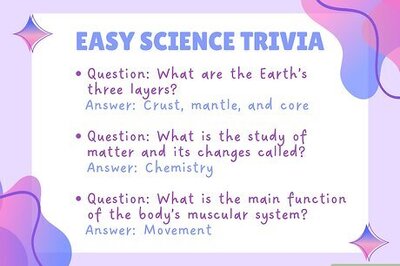








Comments
0 comment